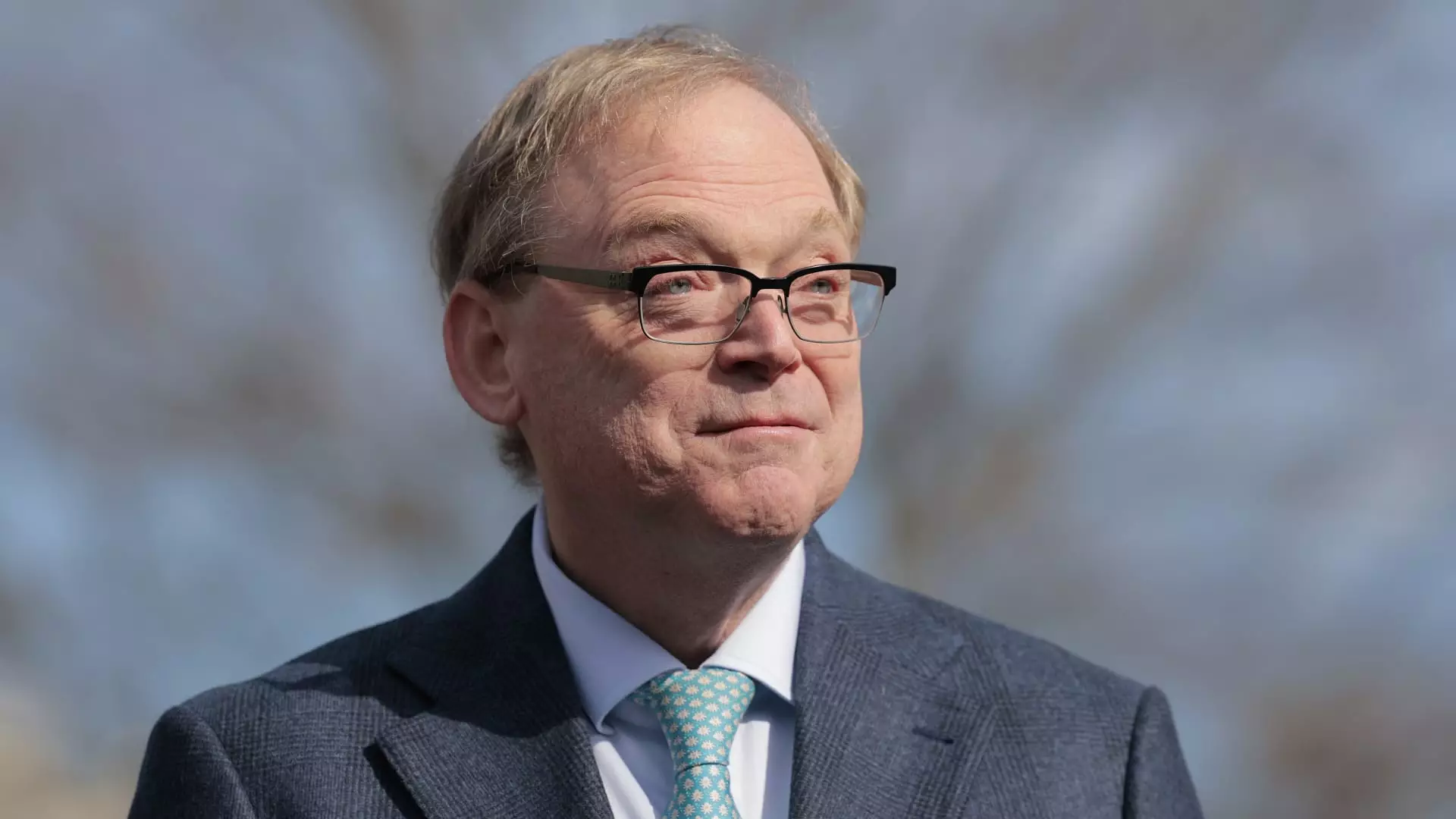In a political climate already rife with insecurity, the Trump administration’s approach to tariffs has transformed uncertainty into a veritable minefield for the economy. Kevin Hassett, Director of the National Economic Council, recently aired his apprehensions about upcoming tariff proposals, emphasizing that the period before April 2 will be marred by a cloud of ambiguity. This rhetoric encapsulates a major broader phenomenon where policy shifts and sudden decisions foster an environment of anxiety. In a world where businesses thrive on predictability, conveying anything less than clarity translates into stalled investments and frayed consumer confidence.
Tariff-related instability has become a primary focus for market analysts and economists. For many, as articulated by Ed Yardeni of Yardeni Research, “Any day where the president doesn’t talk about tariffs is a good day for the market.” This statement rings with an unsettling truth: the less the president comments on trade policy, the better the markets seem to feel, highlighting how deeply intertwined policy and economic performance have become. The bitter irony here is not lost: while tariffs aim to secure American interests, they simultaneously engender a cycle of confusion, jeopardizing those very interests they are designed to protect.
Promises of Clarity: A Fragile Hope
Hassett optimistically asserts that a newfound clarity will emerge post-April 2, yet this projection rings hollow when viewed through the lens of the historical volatility that characterizes this administration’s approach to trade. The promises of reciprocating tariff adjustments serve more as a pie-in-the-sky ideal than a concrete commitment. This disconnect between rhetoric and reality breeds skepticism among business leaders and investors alike, who are left grappling with the question of whether the anticipated clarity will indeed materialize or merely shift the fog elsewhere.
What remains critically troubling is the dual purpose of tariffs against countries like Mexico, Canada, and China, ostensibly to curb illegal immigration and combat the opioid crisis. While these might be justifiable motivations, using economic policy as a tool for such social aims raises moral quandaries. It forces us to consider whether the ends truly justify the means, especially when everyday businesses feel the ripple effects of political maneuvers aimed at addressing issues far more complex than trade deficits.
The Specter of Recession
Adding to the air of uncertainty is the administration’s ambiguous stance on the potential for a recession this year. The failure to clearly articulate the risks involved only adds fuel to the fire—pushing businesses into a state of paralysis that can lead to broader economic repercussions. A recession, once an abstract concept, looms closer with every unclear remark from the White House.
The broad implication here is stark: industries and consumers suffer when leadership prioritizes ambiguous nationalism over constructive dialogue and coherence. The reality is that productive economic growth depends on mutual understanding and engagement—not an ongoing game of economic chicken predicated on tariffs and threats. Angela Davis, a vocal critic of such policy maneuvers, suggests that unless a more diplomatic approach is adopted, the growing fear of recession will only deepen, pulling the economy down with it.
Without a doubt, the constant specter of uncertainty and indecision has unearthed serious vulnerabilities in the American economic landscape. With the clock ticking towards what could be a turning point in trade policy, one can only watch in apprehension as businesses await the much-touted clarity that may or may not arrive. The coming months will be critical, not just for tariffs but for the collective psyche of an economy teetering on the edge.


Leave a Reply